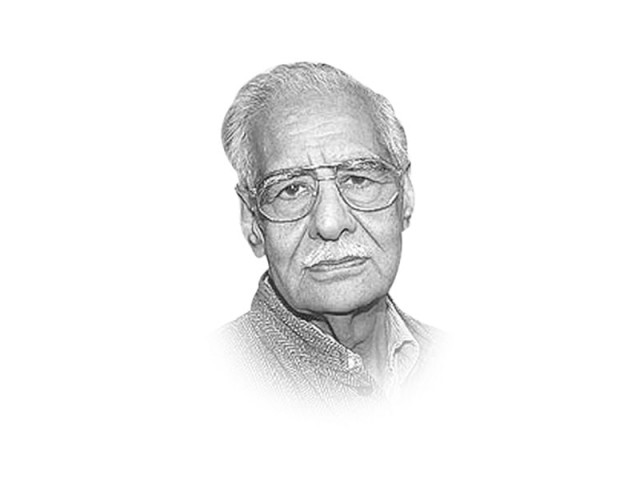Understanding Sardar Patel
The fact that Modi is using Patel’s image for polarising society is unfortunate

Understanding Sardar Patel
After independence, the Nehruvian thought came to influence India because he was the most popular leader and his views fit into the general sentiment of pluralism in the country. Naturally, therefore, the name of Sardar Patel receded.
Prime Minster Narendra Modi has refurbished the past and brought Patel’s name to the fore by celebrating his birthday as Rashtriya Ekta day. It, however, goes to the credit of Prime Minister Modi that unlike his party, the Bharatiya Janata Party (BJP), he has not devalued the role, which Nehru played in freeing and building of the country. The BJP has not mentioned Nehru among the freedom fighters and builders of the nation in its manifesto.
There are people who believe that India’s interests would have been served better if Patel, in place of Nehru, had been the country’s first prime minister. This hypothetical possibility had been voiced by Prime Minister Modi when he was the Gujarat chief minister.
Of all the leaders, Maulana Abul Kalam Azad, Nehru’s guide and philosopher, came to the same conclusion after watching Nehru as an administrator. Azad was in Nehru’s cabinet and observed him from close quarters. Azad told his secretary, Humayun Kabir, that they should have made Nehru the country’s president and Patel its prime minister.
By no stretch of the imagination, can Azad be linked with Patel or his philosophy. During the national struggle, in which both were ardent participants, it was clear that they were poles apart and made no secret of their stances. Patel was a pro-Hindu leader, but strictly adhered to pluralism. Azad was secular through and through and boldly faced the charge of being a ‘Hindu show boy’ that the Muslim League had levelled against him. He did not flinch, even for a second, to say publicly that the formation of Pakistan would be harmful for Muslim interests.
Azad had said before Partition that Muslims could walk proudly in India with their heads held high in the surety that they were equal partners in running the country, even though they were fewer in number. Once India was divided on the basis of religion, Hindus would tell Muslims that as they had taken their share, they should, therefore, go to Pakistan.
Even after 67 years of division, this approach has not been disowned, either in India or in Pakistan. There are very few Hindus left in Pakistan, while Muslims in India continue to be targets for fanatics. When there is tension between the two countries, many Hindus in India start referring to Muslims as Pakistanis. Little purpose will be served in pursuing this point because the wounds of Partition are far from being healed and people in both communities continue to be exploited in the name of religion.
If it had been left to Patel, there would have possibly been an exchange of population before accepting Partition. Nehru was different. He did not mix religion with matters of politics or state. The difference in their respective approaches led to Mahatma Gandhi — who led the war of independence —nominating Nehru as his successor. Hindu-Muslim unity was a matter of faith with Gandhi, but it was not a part of policy.
Gandhi and Patel came from the same state, Gujarat, ate the same food and represented the traditions of their state in many ways. Yet, Gandhi preferred Nehru to Patel. He knew that Nehru even dreamt in English and that he was very much engrossed in world affairs. But Gandhi also knew that Nehru would interpret his philosophy of Hindu-Muslim unity faithfully and would employ methods to implement it in a manner that respected scruples and were non-violent and fair.
Gandhi was also confident that his secular ideals would be safer in the hands of Nehru. This was proved when Patel refused to release Rs64 crore to Pakistan. This sum was part of the assets, which India had agreed to transfer to Pakistan at Partition. Patel argued that he could not release the money when India and Pakistan were engaged in a war over Kashmir. Gandhi had to threaten to go on a fast unto death, after which Patel relented.
Extremist Hindus had vitiated the atmosphere of amity over this sum of Rs64 crore. They criticised Gandhi again and again for being anti-national and anti-Hindu. The RSS, the fallout of the Hindu Mahasabha’s philosophy of Hindutva, hatched a conspiracy and shot dead Gandhi.
Patel was quite right in banning the RSS and blaming it for disturbing the atmosphere of secularism. However, his slant towards the RSS made him withdraw the ban once the organisation changed its character to become a cultural organisation. This was only a smokescreen and the RSS used the BJP for its political activities. Today, Modi can be considered to be its frontman and the RSS openly participates in politics. Nehru had rightly exposed the duplicity of the RSS during his lifetime.
Azad had thought Nehru to be more suitable for the office of the president because he was confident that communal forces had been crushed. He commended Patel’s quality of being pragmatic and practical. Azad had come to have full faith in Patel’s secular aptitude. That Modi is using Patel’s image for polarising society is unfortunate. Practical as Patel was, he would have understood that India’s destiny lay in a democratic, secular polity. He, as prime minister, would have deepened its foundation even more firmly than Nehru did.
Published in The Express Tribune, November 10th, 2014.
Like Opinion & Editorial on Facebook, follow @ETOpEd on Twitter to receive all updates on all our daily pieces.














COMMENTS
Comments are moderated and generally will be posted if they are on-topic and not abusive.
For more information, please see our Comments FAQ